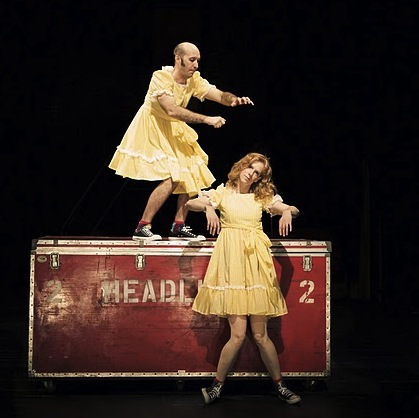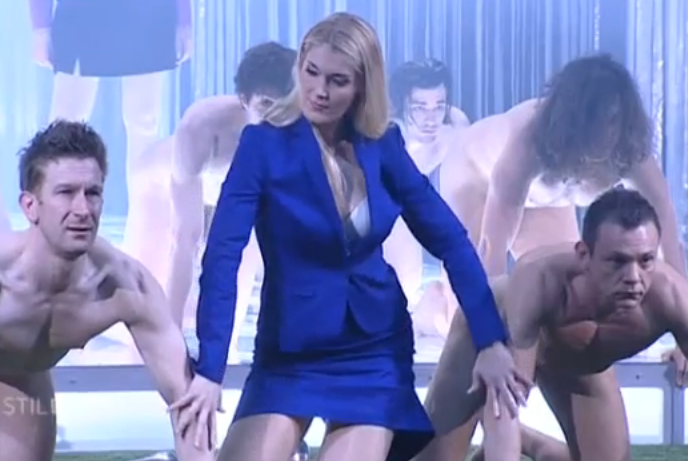Two weeks ago I swung by the free Hot Air Music Festival at the SF Conservatory. It was an all day affair with dozens of pieces from composers who, save for four, all shared a trait that almost guarantees that they’ll be largely unknown and unheard, specifically, they’re alive.
I was only able to attend the last four hours of the day (unfortunately missing David Conte’s Two Motets for Double Brass Quartet) but there was a lot of great stuff packed into those two hours.
Steve Reich’s 1987 Electric Counterpoint was written for Pat Metheny as part BAM’s Next Wave Festival. It was designed to have twelve guitar parts all prerecorded by the soloist, who would then play the “solo” thirteenth part live at the actual performance while accompanied by the tape. The composer also prepared a less frequently performed version for a full battery of guitars, which was the version performed at the festival. No recording can do justice to the sound of a stage full of acoustic guitars strumming. If you get a chance to hear a good guitar ensemble play live, go!
Here’s Gaku Yamada playing the solo version in recital. Dunno who that is, but it’s the best video I could find on YouTube. You can always buy the Pat Metheny version.
httpv://www.youtube.com/watch?v=l34m_bXONVs
Another revelation (for me at least) was Alfred Schnittke’s Concert Grosso No. 1. I was familiar with his name, but he was always one of those composers I was going to get around to listening to later. I think later may have moved to sooner. I was also pleasantly surprised to see that Liana Berube (who played in the premiere of my String Quartet) was one of the soloists. Schnittke certainly has a lot of fun taking baroque forms and motives and layering them to the point of utterly unrecognizable noise. It’s intense and at times nerve wracking, but damn exciting.
httpv://www.youtube.com/watch?v=o3ty4XRB-Qk
The piece is definitely all over the map, but when it hits, it hits hard. Although I think I’d prefer a wee bit more coherence, stylistically.
In recent discussion about the piece, a friend said he preferred his composers to be more “baked” (in the cooked sense, not the altered sense, I assume). More like Barber and Copland than the raw music of Ives and Schnittke. In theory, I share his preferences, but looking back at his list, while I’d prefer to have Copland’s career and skillset, I’d much rather be listening to Ives. At my heart, I’m a pretty conservative composer, but I deeply admire iconoclasts. It’s hard to forge a path when you’re still worshipping idols.

